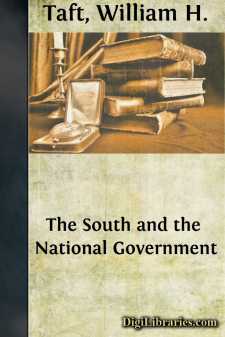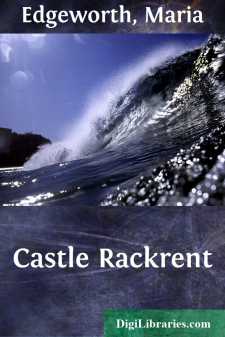Categories
- Antiques & Collectibles 13
- Architecture 36
- Art 48
- Bibles 22
- Biography & Autobiography 813
- Body, Mind & Spirit 142
- Business & Economics 28
- Children's Books 17
- Children's Fiction 14
- Computers 4
- Cooking 94
- Crafts & Hobbies 4
- Drama 346
- Education 46
- Family & Relationships 57
- Fiction 11829
- Games 19
- Gardening 17
- Health & Fitness 34
- History 1377
- House & Home 1
- Humor 147
- Juvenile Fiction 1873
- Juvenile Nonfiction 202
- Language Arts & Disciplines 88
- Law 16
- Literary Collections 686
- Literary Criticism 179
- Mathematics 13
- Medical 41
- Music 40
- Nature 179
- Non-Classifiable 1768
- Performing Arts 7
- Periodicals 1453
- Philosophy 64
- Photography 2
- Poetry 896
- Political Science 203
- Psychology 42
- Reference 154
- Religion 513
- Science 126
- Self-Help 84
- Social Science 81
- Sports & Recreation 34
- Study Aids 3
- Technology & Engineering 59
- Transportation 23
- Travel 463
- True Crime 29
Sort by:
I may assume, that after the terrible example given in my last chapter, you have firmly made up your mind never on any account to take service in the great army of bores. But this determination is not all that is necessary. A man must constantly keep a strict guard on himself, lest he should unconsciously deviate even for a few minutes into the regions of boredom. Whatever you do, let nothing tempt you...
more...
by:
Emile Zola
PIERRE AND MARIE ON the mild March morning when Pierre left his little house at Neuilly to accompany Guillaume to Montmartre, he was oppressed by the thought that on returning home he would once more find himself alone with nothing to prevent him from relapsing into negation and despair. The idea of this had kept him from sleeping, and he still found it difficult to hide his distress and force a smile....
more...
by:
Various
ROSAMOND'S WELL AND LABYRINTH .Rosamond's Well and Labyrinth at Woodstock. For the originals of the annexed engravings we are indebted to the sketchbooks of two esteemed correspondents. The sites are so consecrated, or we should rather say perpetuated, in history, and the fates and fortunes of Rosamond Clifford are so familiar to our readers, that we shall add but few words on the locality of...
more...
by:
F. Anstey
THE INCONSIDERATE WAITER, By J. M. BARRIE Frequently I have to ask myself in the street for the name of the man I bowed to just now, and then, before I can answer, the wind of the first corner blows him from my memory. I have a theory, however, that those puzzling faces, which pass before I can see who cut the coat, all belong to club waiters. Until William forced his affairs upon me that was all I did...
more...
CHAPTER I SIR FREDERICK HARLESTON In these days, when the air is filled with the irritating, peevish sounds of chattering gossips, which tell of naught but the scandals of a court, where Queens are as faithless as are their lives brief, methinks it will not be amiss for me to tell a story of more martial days, when gossips told of armies marching and great battles fought, with pointed lance, and with...
more...
The Museum of Zoology, University of Utah, contains approximately 5000 specimens in addition to those available to Durrant (1952) when he prepared his account of the "Mammals of Utah, Taxonomy and Distribution." Study of this material discloses two kinds of mammals not heretofore known to occur in Utah, and extends the known limits of occurrence of many others as is set forth below in what may...
more...
by:
William H. Taft
Here, if nowhere else, we leave political parties and preferences alone. But here, as everywhere else, we are patriotic men; and we North Carolinians have as our background a community that from the first showed a singularly independent temper. A freedom of opinion is our heritage. We once drove a Colonial Governor who disputed our freedom of political action to the safer shelter of the Colony of New...
more...
Chapter I. Julius Courtney. The Hyacinth Club has the reputation of selecting its members from among the freshest and most active spirits in literature, science, and art. That is in a sense true, but activity in one or another of those fields is not a condition of membership; for, just as the listening Boswell was the necessary complement of the talking Johnson, so in the Hyacinth Club there is an...
more...
WHO CAN PLAY? Anyone who enjoys playing Tennis, Squash Racquets, Platform Tennis, or any racquet game and has good reflexes will love Squash Tennis. Where it lacks the endurance and subtlety that Squash Racquets calls for, it offers the exhilaration inherent in powerfully hit strokes, split-second racquet work, and graceful, seemingly unhurried footwork. The ball "comes to you" more often,...
more...
by:
Maria Edgeworth
INTRODUCTIONIThe story of the Edgeworth Family, if it were properly told, should be as long as the ARABIAN NIGHTS themselves; the thousand and one cheerful intelligent members of the circle, the amusing friends and relations, the charming surroundings, the cheerful hospitable home, all go to make up an almost unique history of a county family of great parts and no little character. The Edgeworths were...
more...











